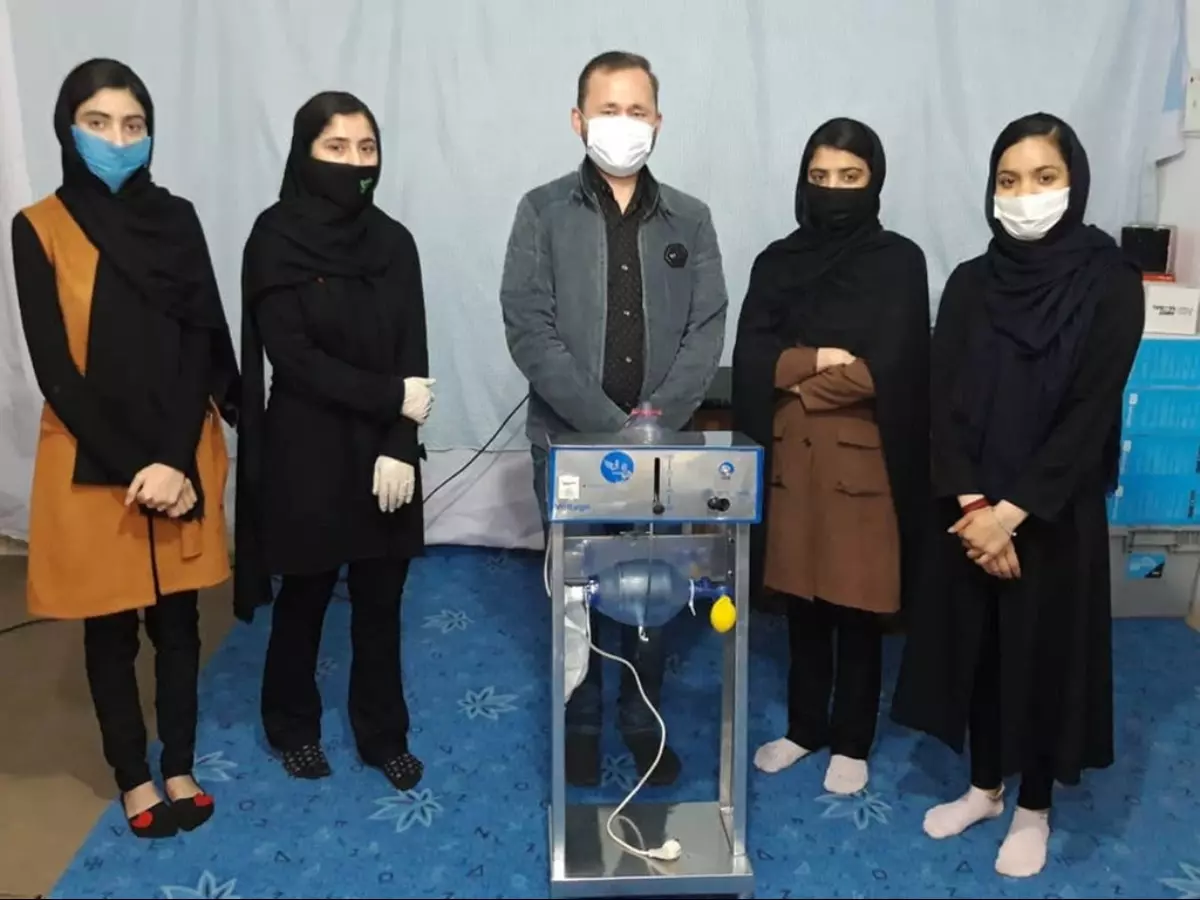Team Of Five Teenage Girls In Afghanistan Makes Cheap Ventilator Design Out Of Toyota Parts
Five teenage girls from a school talent search program in Afghanistan have come up with a ventilator that operates using the motor of a Toyota Corolla. The team has been put together under a trail-blazing programme in the Afghani city of Herat started by serial tech entrepreneur Roya Mahboob.

Worldwide efforts are being made to come up with cheap iterations of ventilators to meet the rising demand for the medical equipment due to the ongoing Coronavirus pandemic. A new team in Afghanistan is a bit different from the rest though, consisting of only five teenage girls in a one of a kind school talent search program.
An all-female robotics team named Afghan Dreamers has come up with a ventilator that operates using the motor of a Toyota Corolla.
The team has been put together under a trail-blazing programme in the Afghani city of Herat started by a serial tech entrepreneur Roya Mahboob. One of Afghanistan¡¯s first female chief executives at 23, Mahboob treats the programme as a passion project, meant to help young women in Afghanistan build digital literacy.
 (Image: Roya Mahboob/ The National)
(Image: Roya Mahboob/ The National)
The team of teenage girls decided to take the task of designing the cheap ventilators as the number of COVID-19 cases rose to an all time high in Afghanistan, compelling the governor of Herat to put out a public plea for more ventilators.
Five Dreamers with captain Somaya Faruqi, Dyana Wahbzadeh, Folernace Poya, Ellaham Mansori and Nahid Rahimi, all aged between 14 and 17, were guided by Mahboob over the project.
As for the ventilators produced, the team is currently working with two prototypes wherein one is a gear-based system based on a design from the Massachusetts Institute of Technology. The other uses parts from a Toyota Corolla.
Pertaining to the first one, the team has been able to design a mechanical system to operate the widely available Ambu bag in hospitals. While it can be operated by hand to pump air into a patient¡¯s lungs, a mechanic version designed by the team would do the same for about USD 200. The team is now gaining international recognition and help for making the concept a practicality.
 (Image: Roya Mahboob/ The National)
(Image: Roya Mahboob/ The National)
The other ventilator essentially works in the same way, using a Toyota¡¯s battery and costs just USD 300 to make, as per a report by The National.
An imposing challenge for the team was to use locally sourced materials for the ventilators. Also, with many cities in Afghanistan being shut down one by one due to the ongoing pandemic, it became increasingly difficult for the girls to spend time on the project as a team.
The team, however, managed to keep working on their designs, coming up with the fine-tuned ventilators and working with doctors to test them.
Post completion, the ventilators will be used as assistive add ons to professional ones. "The idea of these machines is that we use them for emergency cases, when there are no professional ventilators,¡± says Mahboob. She further adds, ¡°If we don't have access to anything professional we can use these ones."
Stories of such heroic are being common day by day as people the world over contribute in some or the other way to fight the Coronavirus. A Bengaluru 3D printing company, for instance, is now making face masks for health officials on the frontlines. Similarly, a team of ex-Apple engineers have come up with a novel way to use regular surgeon masks more effectively using a DIY technique involving only three rubber bands.
